[vc_row][vc_column][vc_separator][vc_column_text]By: Nélida Barajas Acosta, Executive Director, CEDO Intercultural.
.[/vc_column_text][/vc_column][/vc_row][vc_row][vc_column width=”1/2″][vc_single_image image=”1854″ img_size=”full” add_caption=”yes” onclick=”custom_link” img_link_target=”_blank” link=”https://www.iucncongress2020.org/”][/vc_column][vc_column width=”1/2″][vc_column_text]In 2021, the Intercultural Center for the Study of Deserts and Oceans became a member organization of the International Union for the Conservation of Nature. In the regional context, we participate within the Mexican committee.
As members of IUCN, we were invited to participate in the World Congress, which brought together the activities of the congress, the members’ assembly, forums and exhibitions.[/vc_column_text][/vc_column][/vc_row][vc_row][vc_column][vc_column_text]The IUCN World Conservation Congress is where the world comes together to set priorities and drive conservation and sustainable development actions. IUCN’s more than 1,400 member organizations of government, civil society and indigenous peoples vote on important issues, an action that guides humanity’s relationship with our planet for decades to come. IUCN’s unique and inclusive membership gives Congress a powerful mandate, as it is not just government or non-government, but both together.[/vc_column_text][/vc_column][/vc_row][vc_row][vc_column][vc_column_text]Among the many activities of the Congress, the commitments of the French government led by President Emmanuel Macron and the Minister of Ecological Transition, Barbara Pompili, stood out. Harrison Ford’s intervention was without a doubt a moment that motivated the thousands of participants from hundreds of countries and, finally, the election of Razan Al Mubarak as President of IUCN, made history as the second woman to lead this organization in its 73-year history.[/vc_column_text][/vc_column][/vc_row][vc_row][vc_column width=”1/3″][vc_video link=”https://youtu.be/-hNMQqC2vUs”][/vc_column][vc_column width=”1/3″][vc_video link=”https://youtu.be/TENJVvLda-U”][/vc_column][vc_column width=”1/3″][vc_video link=”https://youtu.be/cg4gbbwlpNc”][/vc_column][/vc_row][vc_row][vc_column][vc_column_text]During the congress CEDO participated in various activities, including the
Oceans’ activities. As a preparatory activity for the United Nations Conference on the Oceans, we met the United Nations Ambassador Peter Thompson, the Director of the Ramsar Convention Martha Rojas Urrego and the presidents of the IUCN commissions that include the:
-
- Commission on Education and Communication – Sean Southey,
-
- Commission on Ecosystem Management – Ms. Angela Andrade,
-
- Commission on Environmental, Economic and Social Policy (CEESP) – Kristen Walker Painemilla,
-
- Survival Species Commission – Jon Paul Rodriguez,
-
- World Commission on Protected Areas, where Dr. Madhu Rao was elected as president and a renowned Mexican conservationist, Andrew Rhodes Espinosa, was elected vice president.
Likewise, we reconnected with other organizations such as the German development agency Giz Deutsche Gesellschaft Für Internationale Zusammenarbeit and, finally, with the Yves Rocher Foundation, who awarded our joint project for education in the Morúa Estuary “Women of the Sea, Soul of Salt and Heart of Tides”.[/vc_column_text][/vc_column][/vc_row][vc_row][vc_column][vc_column_text]During the Members’ Assembly, which is IUCN’s highest decision-making body, more than 1,300 IUCN governmental, civil society, and indigenous peoples organizations from more than 160 countries vote on urgent conservation and sustainable development issues. IUCN’s unique and inclusive membership gives Congress a powerful mandate, allowing these decisions to guide humanity’s relationship with our planet for decades to come.
The motions that were taken during the assemblies are described below, indicating those that are directly related to CEDO’s work in the areas of work on Nature-Based Solutions, innovation laboratory, and development for fisheries and sustainable aquaculture and community well-being.
The motions reached and some of which CEDO participated in include:[/vc_column_text][/vc_column][/vc_row][vc_row][vc_column][vc_column_text]Establishing a Commission on Climate Change WCC-2020-Res-110-EN – CEDO[/vc_column_text][vcj_divider type=”solid” radius=”0″ margin=”-20px 0px 5px 0px”][vc_column_text]Accelerates all components of the Union to help prevent global warming above 1.5 ° C; represent a deep focus for all Members, the younger generation, indigenous peoples, island nations and other willing nations and partners; and allow younger generations the opportunity to participate in a leading-edge organization with an unwavering commitment to contribute to a robust and global response to achieve carbon neutrality and climate resilience with a view to avoiding the consequences of global warming greater than 1.5 ° C[/vc_column_text][/vc_column][/vc_row][vc_row][vc_column][vc_column_text]Planning maritime spaces and conservation of biodiversity and geodiversity WCC-2020-Rec-112-ES – CEDO[/vc_column_text][vcj_divider type=”solid” radius=”0″ margin=”-20px 0px 5px 0px”][vc_column_text]This agreement URGES States to adopt a forward-looking approach in the planning of their maritime spaces that guarantees the long-term preservation and protection of marine and coastal ecosystems and the maintenance or restoration of their natural connectivity.[/vc_column_text][/vc_column][/vc_row][vc_row][vc_column][vc_column_text]Restoring a peaceful and quiet ocean WCC-2020-Res-113-ES – CEDO[/vc_column_text][vcj_divider type=”solid” radius=”0″ margin=”-20px 0px 5px 0px”][vc_column_text]RECOGNIZING that anthropogenic underwater noise can alter the vital functions of many marine species, with implications for global food security; and requests the Council to establish a Panel of Experts between Commissions and members of the International Maritime Organization (IMO) and representatives of the subsea noise generation sectors, to seek an integrated approach to reduce anthropogenic underwater noise pollution, in cooperation with entities such as the Global Alliance for Managing Ocean Noise (GAMeON) and the Maritime Environment Protection Committee of the International Maritime Organization;[/vc_column_text][/vc_column][/vc_row][vc_row][vc_column][vc_column_text]Integrated solutions to climate change and biodiversity crises WCC-2020-Res-114-ES – CEDO[/vc_column_text][vcj_divider type=”solid” radius=”0″ margin=”-20px 0px 5px 0px”][vc_column_text]Where climate change is recognized as a direct driver of biodiversity loss that also exacerbates other existing pressures on biodiversity, the role of ecosystem loss and degradation as a major source of greenhouse gas (GHG) emissions and the driver of climate change and the reduction of resilience, the need to prioritize the protection and restoration of ecosystems as an essential mitigation and adaptation action, and the irreplaceability in the relevant time frames (2030-2050) of primary ecosystems to address climate change and the biodiversity crisis.[/vc_column_text][/vc_column][/vc_row][vc_row][vc_column][vc_column_text]Developing and implementing a transformative and effective post-2020 global biodiversity framework WCC-2020-Res-116-EN – CEDO[/vc_column_text][vcj_divider type=”solid” radius=”0″ margin=”-20px 0px 5px 0px”][vc_column_text]To continuously work on the development of a post 2020 agenda for biodiversity.[/vc_column_text][/vc_column][/vc_row][vc_row][vc_column][vc_column_text]Actions to strengthen food sovereignty and security of indigenous peoples and peasant communities WCC-2020-Res-117-EN – CEDO[/vc_column_text][vcj_divider type=”solid” radius=”0″ margin=”-20px 0px 5px 0px”][vc_column_text]Promote more discussions on the relationship between food security, food sovereignty and indigenous peoples, peasants and small agricultural and rural communities, taking into account the role of traditional and local knowledge of protected and conserved areas.[/vc_column_text][/vc_column][/vc_row][vc_row][vc_column][vc_column_text]Recognizing and supporting the rights and roles of indigenous peoples and local communities in conservation WCC-2020-Res-118-EN – CEDO[/vc_column_text][vcj_divider type=”solid” radius=”0″ margin=”-20px 0px 5px 0px”][vc_column_text]Recognizing that the lands and waters conserved by indigenous peoples and local communities are some of the most diverse in the world.[/vc_column_text][/vc_column][/vc_row][vc_row][vc_column][vc_column_text]Giving up the Doctrine of Discovery to rediscover the care of Mother Earth WCC-2020-Res-119-EN[/vc_column_text][vcj_divider type=”solid” radius=”0″ margin=”-20px 0px 5px 0px”][/vc_column][/vc_row][vc_row][vc_column][vc_column_text]Towards a natural capital policy WCC-2020-Res-120-EN – CEDO[/vc_column_text][vcj_divider type=”solid” radius=”0″ margin=”-20px 0px 5px 0px”][vc_column_text]Highlights the continuing importance of the development and implementation of standards and frameworks for the integration of the value of nature in decision-making by governments, companies, financial institutions and society;[/vc_column_text][/vc_column][/vc_row][vc_row][vc_column][vc_column_text]Protect biodiversity and deep-sea ecosystems through a moratorium on seabed mining WCC-2020-Res-122-EN[/vc_column_text][vcj_divider type=”solid” radius=”0″ margin=”-20px 0px 5px 0px”][vc_column_text]RECOGNIZES the concerns expressed by scientists that biodiversity loss will be inevitable if deep-sea mining is allowed to occur, that this loss is likely to be permanent on human timescales, and that the consequences for ecosystem function are unknown. oceanic.[/vc_column_text][/vc_column][/vc_row][vc_row][vc_column][vc_column_text]Towards the development of an IUCN policy on synthetic biology in relation to nature conservation WCC-2020-Res-123-EN[/vc_column_text][vcj_divider type=”solid” radius=”0″ margin=”-20px 0px 5px 0px”][vc_column_text]REAFFIRMS the fundamental importance of applying the Precautionary Principle in synthetic biology applications and its impact on biological systems and nature conservation and sustainable development.[/vc_column_text][/vc_column][/vc_row][vc_row][vc_column][vc_column_text]Adopting measures to reduce light pollution WCC-2020-Res-124-ES – CEDO[/vc_column_text][vcj_divider type=”solid” radius=”0″ margin=”-20px 0px 5px 0px”][vc_column_text]Helps Members and Commissions Reduce Light Pollution.[/vc_column_text][/vc_column][/vc_row][vc_row][vc_column][vc_column_text]Establishing area-based conservation goals that are based on evidence of what nature and people need to thrive WCC-2020-Res-125-EN – CEDO[/vc_column_text][vcj_divider type=”solid” radius=”0″ margin=”-20px 0px 5px 0px”][vc_column_text]Call on all components of IUCN to support, at a minimum, the goal of effectively and equitably protecting and conserving at least 30% of the land.[/vc_column_text][/vc_column][/vc_row][vc_row][vc_column][vc_column_text]Strengthening the protection of marine mammals through regional cooperation WCC-2020-Rec-126-ES – CEDO[/vc_column_text][vcj_divider type=”solid” radius=”0″ margin=”-20px 0px 5px 0px”][vc_column_text]REQUESTS states to strengthen the protection of marine mammals[/vc_column_text][/vc_column][/vc_row][vc_row][vc_column][vc_column_text]Avoiding the point of no return in the Amazon by protecting 80% by 2025 WCC-2020-Res-129-EN – CEDO[/vc_column_text][vcj_divider type=”solid” radius=”0″ margin=”-20px 0px 5px 0px”][vc_column_text]Call to support area-based conservation goals, in order to protect, conserve and sustainably manage at least 80% of the Amazon by 2025.[/vc_column_text][/vc_column][/vc_row][vc_row][vc_column][vc_column_text]Strengthening the role of sustainable tourism in biodiversity conservation and community resilience WCC-2020-Res-130-EN – CEDO[/vc_column_text][vcj_divider type=”solid” radius=”0″ margin=”-20px 0px 5px 0px”][vc_column_text]Commit to dedicated attention to nature tourism.[/vc_column_text][/vc_column][/vc_row][vc_row][vc_column][vc_column_text]Ensuring adequate funding for the IUCN Red List of Threatened Species WCC-2020-Res-131-EN – CEDO[/vc_column_text][vcj_divider type=”solid” radius=”0″ margin=”-20px 0px 5px 0px”][vc_column_text]Help ensure that funds are available to support the work of the Species Survival Commission and the Red List.[/vc_column_text][/vc_column][/vc_row][vc_row][vc_column][vc_column_text]Controlling and monitoring trade in croaker swim bladders to protect target croakers and reduce incidental catches of threatened marine megafauna WCC-2020-Res-132-EN – CEDO[/vc_column_text][vcj_divider type=”solid” radius=”0″ margin=”-20px 0px 5px 0px”][vc_column_text]AWARE that the growing demand for totoaba (Totoaba macdonaldi) swim bladders is the main factor driving a gillnet fishery in the upper Gulf of California that threatens not only totoaba, but has also resulted in the imminent extinction of the vaquita porpoise (Phocoena sinus) due to bycatch, and that a similar demand for the maws of other large croaker species may threaten target species and exacerbate the risk of bycatch of large numbers of other globally threatened marine megafauna, including small cetaceans, sharks, rays and sea turtles,
- REQUESTS the Director General and the Species Survival Commission (CSE) to:
- By 2023, an analysis will be produced on the impacts of the demand and trade of fish maws on the species of meager and threatened marine megafauna and evaluate the effectiveness of including meager in the Convention on International Trade in Endangered Species of Fauna and Wild Flora (CITES); and,
- Consideration of marine megafauna bycatch be promoted in the development of effective policies specifically addressing this issue as a specific subset of Resolution 7.027 that urges all IUCN Members to act to reduce pressure on threatened species of non-selective fishing gear and methods;
[/vc_column_text][/vc_column][/vc_row][vc_row][vc_column][vc_column_text]Calling to withdraw the draft permit for the extraction of fossil fuels under the Wadden Sea, declared a World Heritage Site by UNESCO WCC-2020-Rec-133-EN [/vc_column_text][vcj_divider type=”solid” radius=”0″ margin=”-20px 0px 5px 0px”][/vc_column][/vc_row][vc_row][vc_column][vc_column_text]Protecting Lower Congo from the development of large hydroelectric dams WCC-2020-Res-134-EN [/vc_column_text][vcj_divider type=”solid” radius=”0″ margin=”-20px 0px 5px 0px”][/vc_column][/vc_row][vc_row][vc_column][vc_column_text]Promoting human, animal and environmental health and prevent pandemics through the One Health approach and addressing drivers of biodiversity loss WCC-2020-Res-135-EN – CEDO[/vc_column_text][vcj_divider type=”solid” radius=”0″ margin=”-20px 0px 5px 0px”][vc_column_text]CALLS on Members to promote that future national, regional and global policies, plans, approaches and potential instruments and mechanisms not only improve preparedness and response, but prioritize the need to prevent future zoonoses-related pandemics by addressing the factors that drive the decline of biological diversity.[/vc_column_text][/vc_column][/vc_row][vc_row][vc_column][vc_column_text]Protecting Okavango from Oil and Gas Exploitation WCC-2020-Res-136-EN [/vc_column_text][vcj_divider type=”solid” radius=”0″ margin=”-20px 0px 5px 0px”][/vc_column][/vc_row][vc_row][vc_column][vc_column_text]Affirming the right of indigenous peoples and local communities to sustainably manage and use wild resources in the context of COVID-19 WCC-2020-Res-137-EN – CEDO[/vc_column_text][vcj_divider type=”solid” radius=”0″ margin=”-20px 0px 5px 0px”][vc_column_text]Recognizes the right of indigenous peoples and local communities (IPLC) to use and sustainably manage their natural resources, species of wild animals, plants and fungi, within the framework of the laws of conservation of wildlife and the nature of their respective countries.[/vc_column_text][/vc_column][/vc_row][vc_row][vc_column width=”1/2″][vc_column_text]It was undoubtedly 10 days of intense work that culminated in a visit to the Calanques de Marseille, a natural protected area that obtained the highly valued title of “Parc National de France” in 2012. Magnificent cliffs with multiple landscapes and vertiginous peaks on the Mediterranean coast with its narrow beaches that stretch about 20 km between Marseille and Cassi, and into some islands, including the famous island of Montecristo that appears in The Count of Montecristo the novel by Alexander Dumas.[/vc_column_text][/vc_column][vc_column width=”1/2″][vc_single_image image=”1859″ img_size=”full” add_caption=”yes” onclick=”link_image”][/vc_column][/vc_row][vc_row][vc_column][vc_text_separator title=”Photo Gallery” i_icon_fontawesome=”fas fa-camera” i_color=”custom” add_icon=”true” i_custom_color=”#6e98bf”][vc_masonry_media_grid grid_id=”vc_gid:1633904660057-ee3f0f4d-7c23-4″ include=”1860,1861,1862,1864,1865,1866,1867,1868,1869,1870,1857,1856,1863,1854″][vc_column_text]All photos by IUCN[/vc_column_text][/vc_column][/vc_row][vc_row][vc_column][vc_column_text]About the IUCN Congress
The IUCN World Conservation Congress is where the world comes together to set priorities and drive conservation and sustainable development action. IUCN’s 1400+ government, civil society and indigenous peoples’ Member organisations vote on major issues, action which guides humanity’s relationship with our planet for the decades ahead. IUCN’s unique and inclusive membership gives the Congress a powerful mandate as it is not solely government or non-government, but both together.
iucncongress2020.org[/vc_column_text][/vc_column][/vc_row][vc_row][vc_column][vc_separator style=”shadow” border_width=”2″][vcj_team_member image=”1744″ name=”About the Author:” layout=”style3″ image_ratio=”portrait” color_name=”#ca972e”]
Nélida Barajas Acosta
Executive Director of Intercultural Center for the Study of Deserts and Oceans.
I am a passionate and committed conservationist, mother of three wonderful people, biologist from UNAM, Master of Science from CIMAV and Doctor in philosophia from UACH. My professional experience includes research, regulatory management, environmental education, political science interface and complex systems.
I have directed numerous national and international projects with WWF, TNC, CFE, GIZ, advised international cooperators and as a public servant in the Federal Government. I participated in the coordination of substantive issues of COP-13 of the CBD; I was a Specialist in the United Nations system; and Coordinator of the First IUCN Mexican Forum with the Mexican Committee.
[/vcj_team_member][vc_column_text]My commitment is to work every day on global challenges to build a world where people respect and protect biodiversity, and recognize that the environmental goods and services that they provide us are fundamental to living in harmony with nature and building equitable societies.[/vc_column_text][/vc_column][/vc_row][vc_row][vc_column][vc_column_text][ctct form=”1153″ show_title=”false”][/vc_column_text][/vc_column][/vc_row]
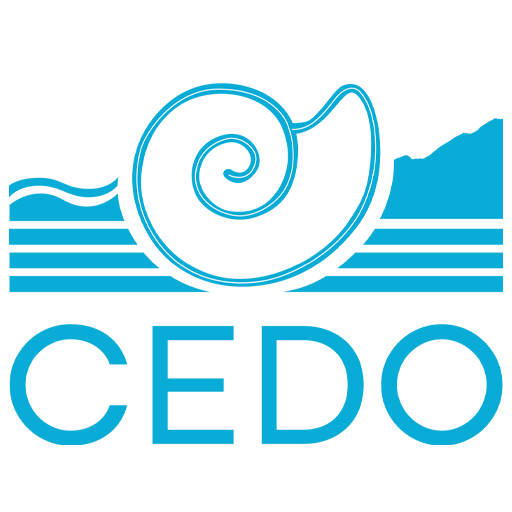




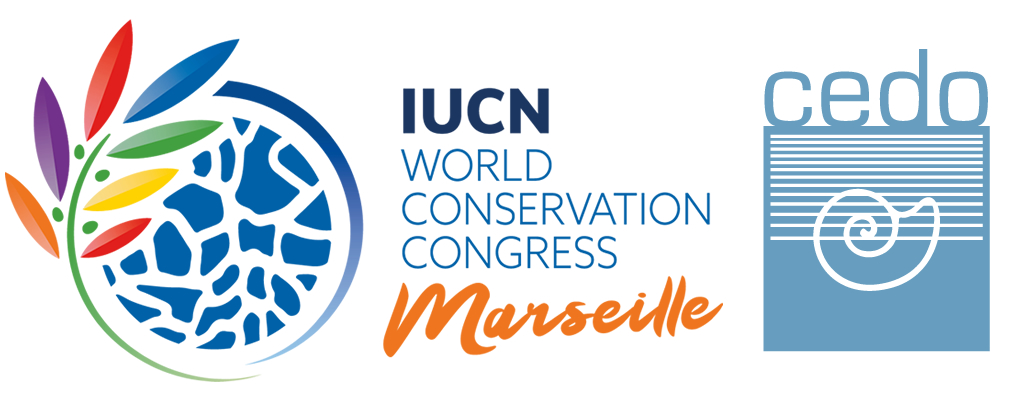
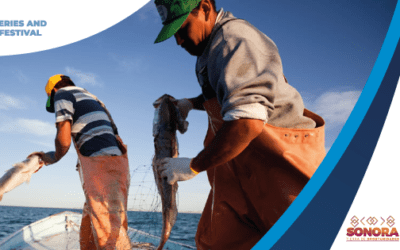
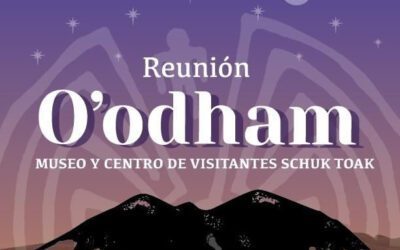
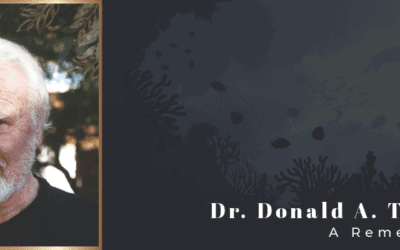
0 Comments